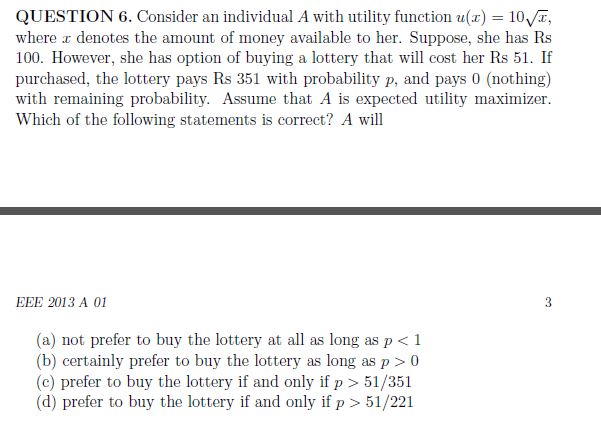I did it this way -
Utility without lottery = 10 (100)^1/2 = 100
Expected value of lottery = 400p+49(1-p) = 351p+49
Utility of expected value of lottery =10(351p+49)^1/2
Equating this to 100 for indifference, we get p = 51/351
But the answer is p>51/221 and not 51/351 !
I also tried another way
I found Utility of the lottery = p U(winning)+(1-p) U(losing) = p 10(400)^1/2 + (1-p) 10(49)^1/2 = 130p+70
Equating to 100 for indifference, p = 3/13
This p is equal to the answer given
How is this happening??


